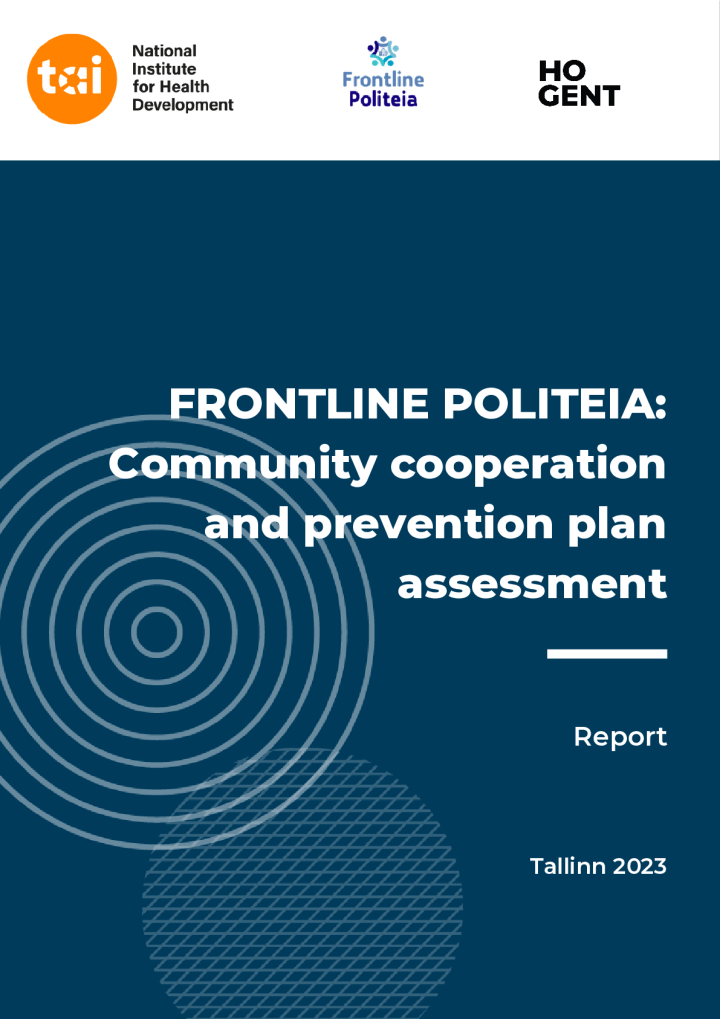FRONTLINE POLITEIA: Community cooperation and prevention plan assessment
This report summarises the results of local-level prevention plan assessments conducted as part of the Frontline Politeia project, as well as lessons learned from cooperating with local communities during the project.
Aim: Creating guidelines for assessing the quality of community prevention plans (in the form of a prevention plan assessment form), analysing prevention plans obtained from communities participating in the Frontline Politeia project, and summarising feedback on community cooperation during the project.
Scope: Feedback on cooperation with communities from 18 pilot communities in 8 countries. Prevention plans from 13 communities in 7 countries.
Main findings: The quality of prevention plans assessed fell within a medium to good range. Communities generally received high scores for basing their plans on up-to-date needs assessments – a benefit of the data collection using the CTC Youth Survey done as part of the Politeia project. However, some challenges were encountered in defining appropriate outcome and process indicators for prevention activities and ensuring that these activities were grounded in evidence or theory. The weakest aspects of the plans were related to how they were formed and which activities were planned to enforce the plan, including details like stakeholder involvement, communication, advocacy, and the plan’s alignment with the wider prevention agenda. The eventual quality of the prevention plans was also related to community readiness and motivation.
Main lessons learned from cooperating with communities during the project highlighted the importance of strong leadership, assessing community readiness, fostering clear communication and understanding local dynamics.
